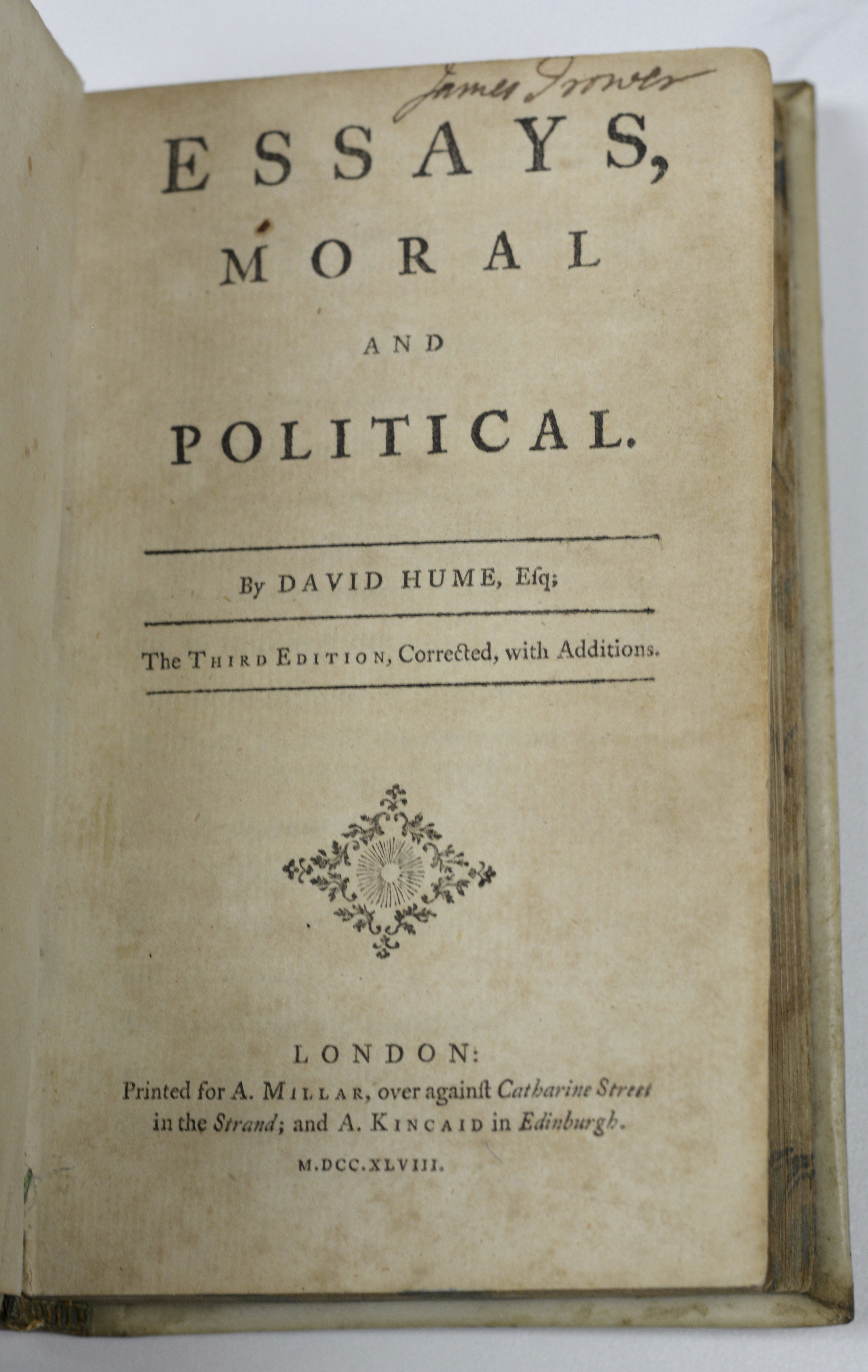Available Copies from Independent Booksellers

HUME, David.. Essays, Moral and Political.. Printed for A. Millar, London, 1748.
Price: US$500.00 + shipping
Description: iv, 312 pp. 12mo, contemporary full calf. The Third Edition, Corrected, with Additions. Spine chipped at extremities; joints cracked; most of spine label absent.
Seller: Jeffrey H. Marks, Rare Books, ABAA, Rochester, NY, U.S.A.

David Hume. Essays - Moral and Political. A. Miller in London and A. Kincaid in Edinburgh, 1748.
Price: US$999.95 + shipping
Condition: Very Good
Description: Gorgeous Third Edition of Hume's Essays- Moral and Political. Printed in 1748 the same year as the first 2 editions. This copy is bound in parchment/vellum over boards, likely rebound early in it's life as most copies we've seen are in calf. See pics. The binding is perfect aside from a bit of darkening as is normal. The text block itself in good shape with some discoloration (see pic). Overall in Very Good Plus condition. We tried to take good pics of the binding and text block.
Seller: Bergen Book Studio, Hillsdale, NJ, U.S.A.

Price: US$10000.00 + shipping
Description: First edition. Twelvemo.(166 x 95 mm). iv; 256; [4, ad] pp. Contemporary brown calf, expertly rebacked to style, spine gilt-stamped with black and red morocco labels, marbled endpapers, all edges red. Some mild toning. Very good. Better known as An Enquiry Concerning Human Understanding under which title the Philosophical Essays was reprinted in 1758, the book is a reworking of the first part of Hume's Treatise of Human Nature, with the addition of his notorious essay On Miracles, which denies that a miracle can be proved by any amount or kind of evidence. The Philosophical Essays Concerning Human Understanding is "an attempt to define the principles of human knowledge. It presents in logical form the significant questions about the nature of all reasoning in regard to matters of fact and experience, and it solves the problems by recourse to association." (Encyclopaedia Britannica). David Hume [1711-1776] "was an 18th-century British Empiricist philosopher, historian, economist, and essayist, who conceived of philosophy as the inductive, experimental science of human nature. Taking the scientific method of the British physicist Sir Isaac Newton as his model, Hume tried to describe how the mind works in acquiring what is called knowledge. He concluded that no theory of reality is possible; there can be no knowledge of anything beyond experience. Despite the enduring impact of his theory of knowledge, Hume seems to have considered himself chiefly as a moralist." (Encyclopaedia Britannica). Todd 1747 (2). Jesop, p. 19. Chuo 38. HBS 66959. $10,000.
Seller: Heritage Book Shop, ABAA, Beverly Hills, CA, U.S.A.